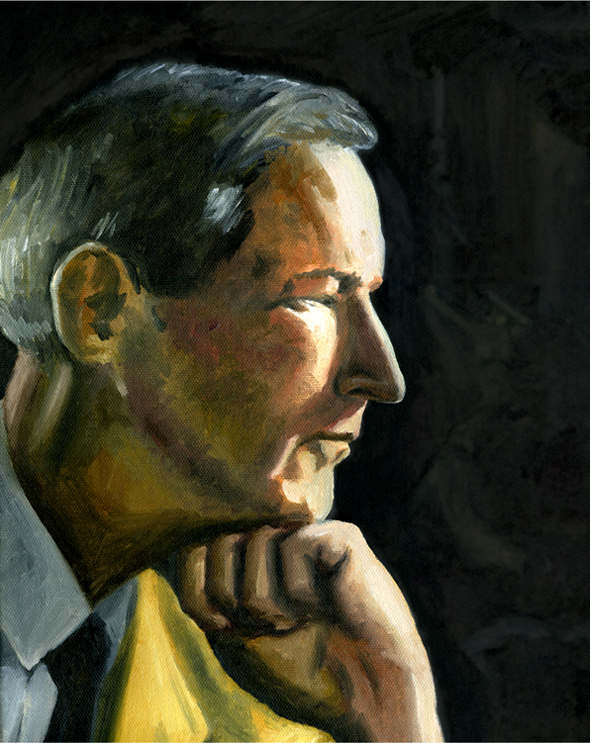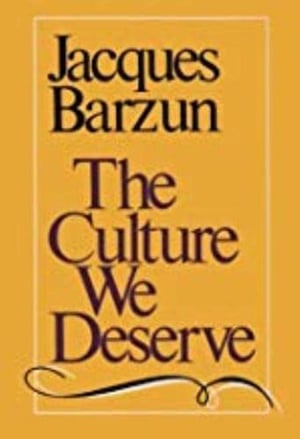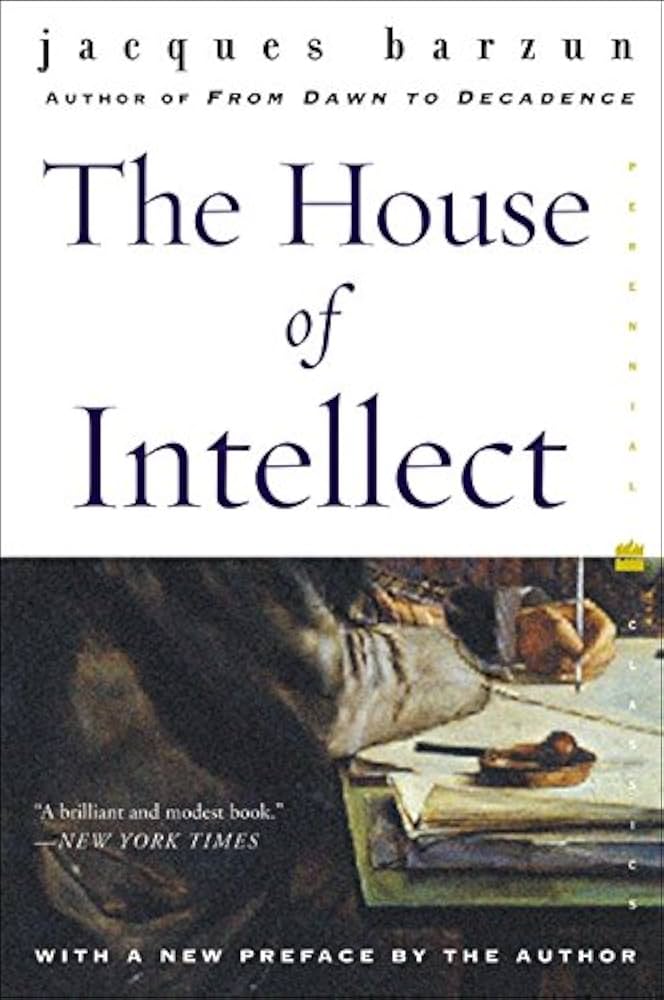by Pedro Blas González (April 2025)

The truth is, realism does not denote a relation to life so much as a literary effect… To the literary imagination anything can happen and all of it is equally true. —Jacques Barzun
Jacques Barzun, that indefatigable cultural historian, historian of ideas, and writer, writes in his mammoth 1971 A Catalogue of Crime, co-written with Wendell Hertig Taylor, that the book, a literary labor of love, is a work that “enables the connoisseur and the neophyte to find, with greater confidence than luck provides, stories good to read or good to avoid.” Anyone who has held this colossal reference source of detection and crime fiction in their hands, cannot help but be awed by the scope, insight, knowledge, and inspiration of the book’s gifted authors.
A Calatogue of Crime contains thousands of entries of books, some are obscure but worthy of discovery, others classics, and others would eventually become regarded as classics after the book’s publication in 1971, and second edition, in 1989. On a literary and cultural level, the books and authors that comprise this volume have contributed to the genre of detection and crime fiction, keeping voracious readers content and occupied with the delicious bug that is reading. That, in itself, is a contribution to literacy, given that reading orders thought.
Barzun: Historian of Ideas

Barzun has written extensively on the arts and humanities. The Culture We Deserve: A Critique of Disenlightenment is a must read for readers who want to understand the plight of reading, literacy, and culture in late postmodernity. In that work, Barzun, who passed away in 2012 at aged 104, does not apologize for telling readers that the art of reading, for knowledge or pleasure, has seen better days. In subsequent interviews, he lamented that reading is dead.
The downturn in reading habits of people in late postmodernity is a major determining factor in the plight of thought, the importance of ideas, and knowledge, in our time. As goes reading, so goes the cultural level of nations, especially complex, technological nations in the twenty first century and beyond. The title of The Culture We Deserve is self explanatory; we have the culture we deserve. That includes the destruction of thought, ideas, books, and culture.
Barzun’s monumental From Dawn to Decadence:1500 to the present: 500 Years of Western Cultural Life is a rare work of history today. A book of 877 pages, From Dawn to Decadence is rife with prescient observations about man, the world, and Western Civilization, observations that late postmodern Marxist critics continue to try to obliterate.
One such observation that Barzun makes that escapes the purveyors of science as a religion and their misguided cousins, people who swear that scientism is capable of providing answers to all human concerns, is that many of the ‘material advantages’ and inventions that science is credited with are older than science as a discipline. Barzun argues that technology, which stems from the ancient Greek word techne, “the practical arts, not their ology, came earlier and was for a long time the foster mother of science.”
For ancient Greek philosophers, particularly Aristotle, techne embodies a form of ‘doing,’ that is, craft, skill, and art. The reasoning for this is that, because the mind has a one-to-one-correlation with human reality (what there is), mind is capable of uncovering some aspects of reality.
However, in order for man to uncover essential components of human reality, mind must be active not passive. Reality does not give away its secrets – unless man actively seeks knowledge. When this happens, reality is said to open up, as it were, and reveal its secrets. Thus, techne unveils the inner workings of things that man can become privy to.
For us today, techne conveys applied science. Yet, the process of techne is more involved than technology in determining scientific development. Aristotle realized that craftsmen learn from experience how best to create tools. This empirical learning eventually becomes the stuff of universal knowledge, that is, the revelation of first principles.
Barzun describes techne in its application as invention, which he argues we wrongly ascribe to science. “Inventors made machines before anybody could explain why they worked,” he writes. This practical aspect of techne answers worldly concerns in terms of what, not why. Barzun is correct in his assertion that “pure science is not as pure as it thinks it is. Experimenting requires equipment.”
As a historian attempting to understand the modern world, Barzun’s prescient knowledge of philosophy serves not only to bulk up his understanding of history, but also the philosophy of history. This means that he has a sound grasp of the metaphysical underpinning of history, a condition that can serve late postmodern man to ground our assertions about man, society, and the world on solid grounding.
The House of Intellect
 I first encountered Jacques Barzun’s work and thought in his 1956 book The House of Intellect. Intellect? What is it? How is intellect different from intelligence? Barzun does not vacillate in offering an answer to these questions in regard to culture. Intellect seeks understanding, even if for practical reasons. The House of Intellect is a work that explores the scarcity of intellect in an age of dumbing down. The book is a study of Western civilization biting its own tail; the celebration of decadence as emancipation from the past.
I first encountered Jacques Barzun’s work and thought in his 1956 book The House of Intellect. Intellect? What is it? How is intellect different from intelligence? Barzun does not vacillate in offering an answer to these questions in regard to culture. Intellect seeks understanding, even if for practical reasons. The House of Intellect is a work that explores the scarcity of intellect in an age of dumbing down. The book is a study of Western civilization biting its own tail; the celebration of decadence as emancipation from the past.
One of the enemies of intellect, Barzun tells us, is philanthropy. Barzun explores the stranglehold that philanthropy has on institutions, foundations, and grants, etc. Philanthropy promotes virtue signaling optics at the expense of intellect. He explains: “I use philanthropy to mean the liberal doctrine of free and equal opportunity as applied to things of the mind. This application has two results. The first, to which I shall return in discussing education, is the corruption of judgment; the second, which forms the subject of the next chapter, is the corruption of the products of intellect themselves.”
Compare that description of philanthropy with Barzun’s definition of intellect: “For Intellect to say that its duty is clear and limited, that it cares little for happiness, that it puts other virtues ahead of good will and does not seek world peace, convicts it out of its own mouth. So much sobriety is not in fashion, it looks like provincialism, a refusal of enlightenment – complacency.” No doubt that Barzun was correct in his assessment of philanthropy; circa 2025, philanthropy is a cottage industry of self-promotion that gains traction through virtue signaling, not intellect.
Philanthropy is a late postmodern word that straddles alleged social-political ‘justice’ that takes its cue from ideology. Part of the problem with philanthropy, we must ask, is who is benefitting from this bloated philanthropy? The most vulgar offenders are philanthropies that hide behind the badge of doing the public good: affectation.
Literary Barzun
 A Catalogue of Crime was originally published in 1971. The book was so enticing to readers that Barzun revised it in 1989. The complete title of the book is A Catalogue of Crime: Being a Reader’s Guide to the Literature of Mystery, Detection, and Related Genres.
A Catalogue of Crime was originally published in 1971. The book was so enticing to readers that Barzun revised it in 1989. The complete title of the book is A Catalogue of Crime: Being a Reader’s Guide to the Literature of Mystery, Detection, and Related Genres.
Barzun’s anecdote of how the book was conceived is an interesting testament to the cultivation of reading and curiosity in young children. While a young boy in France, Barzun started to read Sherlock Holmes stories. When he came to America, around the age of twelve, he began to annotate and write notes about the crime stories and books he read. While in Harrisburg High School in Pennsylvania, Barzun became friends with Wendell Hertig Taylor, another student at the school. The two began recommending books to each other and exchanging notes about the books they read.
As adults, Barzun began teaching at Columbia University and Taylor at the University of Pennsylvania; they continued to exchange their writings on the books they read. Eventually an editor friend of Barzun’s at Harper & Row recommended that the two men should compile their reviews of books and publish them in a book.
A Catalogue of Crime is divided into five parts, each denoting a specific genre of fiction. All five sections of the book are worthy of attention. Because A Catalogue of Crime is a work of reference, readers can jump around the different sections in search of their favorite themes, genres, and writers. Sections I, III and V are particularly fruitful. Sections I and III cover novels of detection, crime, mystery, espionage, and lives of writers. Section V is devoted to Arthur Conan Doyle’s Sherlock Holmes novels and stories.
A Catalogue of Crime goes a long way in presenting alluring and engaging essays on some of the best known and greatest writers. The book is organized alphabetically by author, in addition to being organized by title under the author’s name. The work contains a total of 5,045 entries.
For readers of fiction, A Catalogue of Crime is a truly worthwhile tool to have in a library. A long, long time ago when people read, and academic pedants determined who were the ‘serious’ writers, novels of detection, mystery, and espionage were relegated to second-class fiction. A profound irony in this is that, today when very few people read, not least of which are academics, writers of the aforementioned genres are the ones minding the store of literary culture.
Many writers that comprise this volume are some of the best known writers in fiction and literature: Edgar Allen Poe, Conan Doyle, Somerset Maugham, Guy de Maupassant, Wilkie Collins, Agatha Christie, Dorothy Sayers, Rex Stout, Jorge Luis Borges, Georges Simenon, John Creasey, Cornell Woolrich, and Tony Hillerman—the list is extensive.
A final comment worthy of Barzun and Taylor as writers and historians of ideas is that they have written a book that eschews pedantry and academic theories, in addition to not dragging the authors and books they write about through the mud of ideological virtue signaling.
Lifelong readers understand that authors like Barzun and Taylor are rare cultural and literary historians that will likely not be reproduced in the near future, certainly not in the cultural and literary desert that is late postmodernity. A Catalogue of Crime celebrates a bygone cultural and literary aspect of Western civilization.
Table of Contents
Pedro Blas González is Professor of Philosophy in Florida. He earned his doctoral degree in Philosophy at DePaul University in 1995. Dr. González has published extensively on leading Spanish philosophers, such as Ortega y Gasset and Unamuno. His books have included Unamuno: A Lyrical Essay, Ortega’s ‘Revolt of the Masses’ and the Triumph of the New Man, Fragments: Essays in Subjectivity, Individuality and Autonomy and Human Existence as Radical Reality: Ortega’s Philosophy of Subjectivity. He also published a translation and introduction of José Ortega y Gasset’s last work to appear in English, “Medio siglo de Filosofia” (1951) in Philosophy Today Vol. 42 Issue 2 (Summer 1998). His most recent book is Philosophical Perspective on Cinema.
Follow NER on Twitter @NERIconoclast
- Like
- Digg
- Tumblr
- VKontakte
- Buffer
- Love This
- Odnoklassniki
- Meneame
- Blogger
- Amazon
- Yahoo Mail
- Gmail
- AOL
- Newsvine
- HackerNews
- Evernote
- MySpace
- Mail.ru
- Viadeo
- Line
- Comments
- SMS
- Viber
- Telegram
- Subscribe
- Skype
- Facebook Messenger
- Kakao
- LiveJournal
- Yammer
- Edgar
- Fintel
- Mix
- Instapaper
- Copy Link






